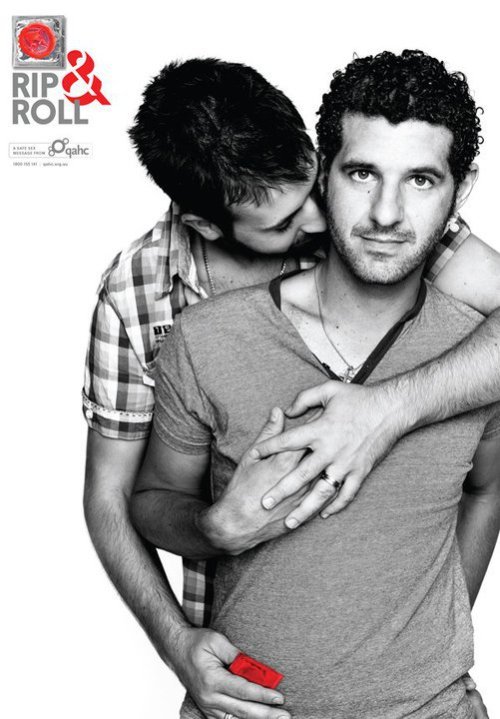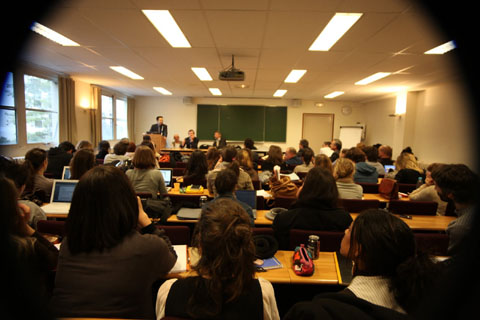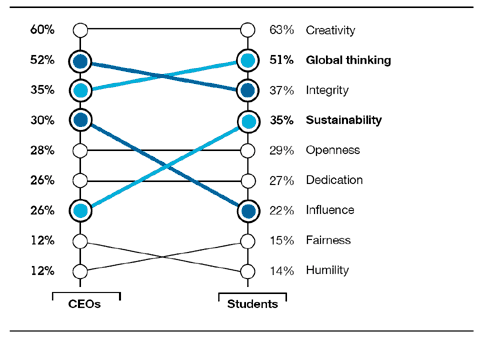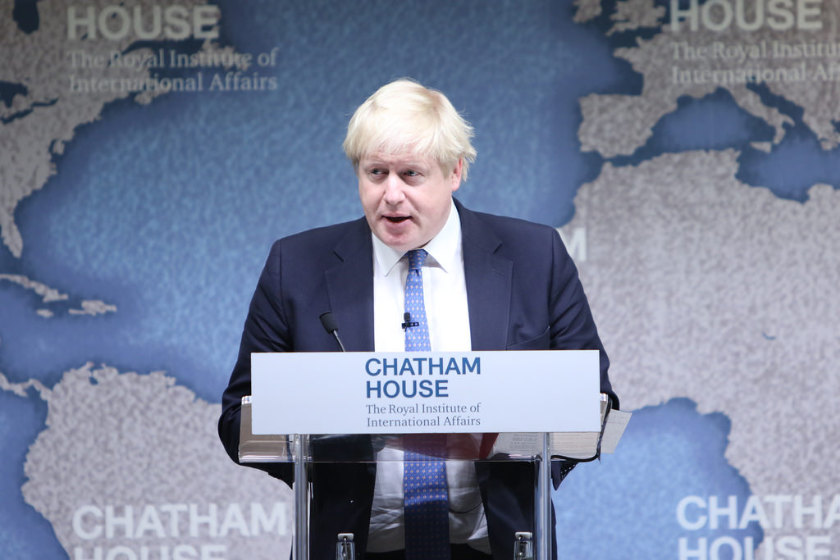 I don’t have the other writers’ permission to show their side of this Facebook dialogue, but we had been chatting about growing the creative clusters here in Wellington as one of my mayoral policies.
I don’t have the other writers’ permission to show their side of this Facebook dialogue, but we had been chatting about growing the creative clusters here in Wellington as one of my mayoral policies.
I wrote:
Mostly by focusing on growing creative clusters and taking a bigger slice of the cake. So it is not from technocratic ideas or the notion that we are liberating more of the economy, but by growing entrepreneurship. The city will take the most socially responsible, entrepreneurial start-ups and act as an agent to grow them (with an agreement that they remain in Wellington, of course) and create the capital flows to get them funded. I realize there is Grow Wellington already, but their ambit will be shifted.
So, it’s economic growth from the bottom–up.
Then (italics added for this post):
The clusters have naturally formed but they can get so much stronger. If the city is being them, then there is no reason Wellington cannot become internationally known for them. I think in this last week I have shown that borders mean very little to me, and anyone who wants to be mayor in the 2010s needs to have a similar mindset. We are not competing just for national resources, but global ones; and by being part of the global community, we might start bridging more communities and getting some greater global understanding. The nation–state as it was understood in the 20th century is dying as a concept, and governments have only themselves to blame. Things are shifting to the individual–community level, and you are right, real things happen when it is people acting at the coal face. Those who distance themselves will not be equipped for this century.
I wish I could claim I had some vision of the death of the nation–state years ago, but I hadn’t. It was something that dawned on me fairly recently, given the scepticism many people (not just in New Zealand) are having toward their national governments. There are many factors, from governmental misbehaviour to the simple fact of a very divergent population, but very importantly we have the rise of technologies that give rise to people power. We want to know that political leaders are one with the public, prepared to do their bidding.
People are reclaiming their voices, prepared to tell those in authority what they think. Even without the authority, a few of you have told me what you think—good and bad. That’s the way it should be in a democracy—and if we truly believe people are equal. Finally, we are organizing ourselves into active groups more rapidly than before.
Nation brands are harder to pull off because some marketers are failing to grasp the overall philosophy underlying their people. In New Zealand, we might accept the “100 per cent pure” ideal of our destination-branding campaign, but surely being a New Zealander is something far less clear—is the Kiwi spirit not in independence, innovation, team spirit and, once that team is formed, taking a punt? Very seldom do we see such unified efforts as the successful ‘Incredible India’, which must have changed perceptions of that Asian country more effectively than any nation branding campaign from the continent. It is, however, easier to understand the concept behind a city, and to gain agreement on its meaning.
The other thing that is emerging in the 2010s is the rise of one-to-one communications across the planet. We might argue we have had this since the internet first dawned, and we can even trace this back to the first satellite TV links, but this is the decade that these ideas are mainstreaming and available to more people than ever before. Twitter is a wonderful example of the awareness of individuals and the death of national borders (which is why it is feared by certain dictatorial régimes): suddenly we are in a community together, fighting everything from copyright law to commemorating the death of a woman during the Iranian election’s bloody aftermath.
I am reminded of a seminal moment on the Phil Donahue show, where he linked his 1980s, Cold War-era audience via satellite with a similar group in the USSR, hosted by Vladimir Posner. There was a tense, icy moment till one of the Russians stated that if he could reach out across the airwaves and give his American counterpart a hug, he would. Humanity came through.
Anti-Americanism is a very interesting concept, because the American national image has leaned regularly toward the negative. No more so than during the Cold War, in the USSR. Certain American corporations and lobby groups have a lot to answer for, so you don’t even need to travel back in time to find that hatred. How many times have we heard during the 2000–8 period, outside the United States, ‘I don’t mind the Americans, but I hate Bush’?
I get plenty of strange looks for my preferring the -ize ending, being told that it was ‘American’ and, therefore, inferior and unsuitable for consumption in New Zealand. I simply point them to the authority I trained with in my work: the Concise Oxford Dictionary. For as long as I can remember, -ize is English and the first variant in that publication. My father’s 1950s’ edition and my 1989 one agree on this point. The use of -ise is French, and it only began coming in to English as a knee-jerk reaction against ‘American English’. But the “wisdom” prevails: if the Yanks (a term that some of my American friends find humorous, since in the US it only applies to a certain part of the population) use it, it must be bad. Look at the Ford Taurus.
It is a trivial thing to argue about, but it is an example of how silly things get. I get dissed while half the population believe their Microsoft Word default spellcheck and write jewelry. By all means, oppose the technocratic abuse of workers wherever it comes from; oppose those lobby groups trying to wreak havoc on our private lives. If they happen to be in the US, direct your wrath at those groups via email or whatever means you have. On those areas the nation–state is not dead yet—not when we need central governments to safeguard our rights. Or when we need someone to root for in a football match. But for everyday matters, being against any one nation—and I have been accused of Japan-bashing (which, incidentally, I deny)—is futile, because we are now so much more aware of how much individuals in other countries are like us, thanks to all these social media.
Once we start reducing the arguments down to individuals and groups, we begin taking the nation brand out of it. We begin liaising as a global community. For all the hard times I give Facebook, it has probably done more to give us a glimpse in to foreign countries as “just another place my friend lives in” than any travel show on TV. We begin understanding theirs are lives just like our own. We realize that not all Japanese eat whale meat or even care about it. We realize that many Iranians do not believe that their government has a mandate to govern. We realize some Sri Lankans believe their recent election was unfair. (It is, for instance, hard to imagine things getting more personal than when an arrested opposition leader’s daughter starts blogging.) When we reach out, we reach out to people, not to countries.
Where is, then, our pride about where we live? I argue—as this whole ‘Wellywood’ sign débâcle has shown—that it resides at the city level. We have a far more homogeneous idea of what our cities stand for, and as we come together and choose to live in any one place, we take into our regard what we believe that city’s assets and image to be. Over time, it becomes a self-fulfilling prophecy. New Wellingtonians choose to make this their home because they see it either as the most creative city in the nation or they are fed up with the excesses of a more northern location. It is, as two of my friends who have left their Auckland home this year put it, ‘more cerebral’. While there have been city campaigns that have been botched—‘I Am Dunedin’ was met by plenty of criticism by Dunedinites—there is at least some understanding among citizens, who feel they need no slogan to unite them. (In Wellington, who has uttered ‘Absolutely positively’ in recent years?)
So the 2010s are the time of city brands. At Medinge, my friend and colleague Philippe Mihailovich stressed that while ‘Made in China’ was naff, ‘Made in Shanghai’ had cachet. Over the weekend, I joked with one friend over poor French workmanship on the Citroën SM—though ‘Made in Paris’ would probably do quite well for fashion and fragrance (Philippe has more on this, too). Wellington deserves to be alongside the great cities of this world if we can show technological and creative leadership—and we get willing leadership prepared to understand just how we compare and compete at a global level. We already have the unity as we all understand who we are; we now need the voice.







Jack, its too bad you are so far away, I say, lets go get a drink together. Be well Jack.
Jerry, I would love that. Maybe next time one of us is in the other’s country. My last time on US soil was so fleeting (seven hours waiting for the next plane at SFO).